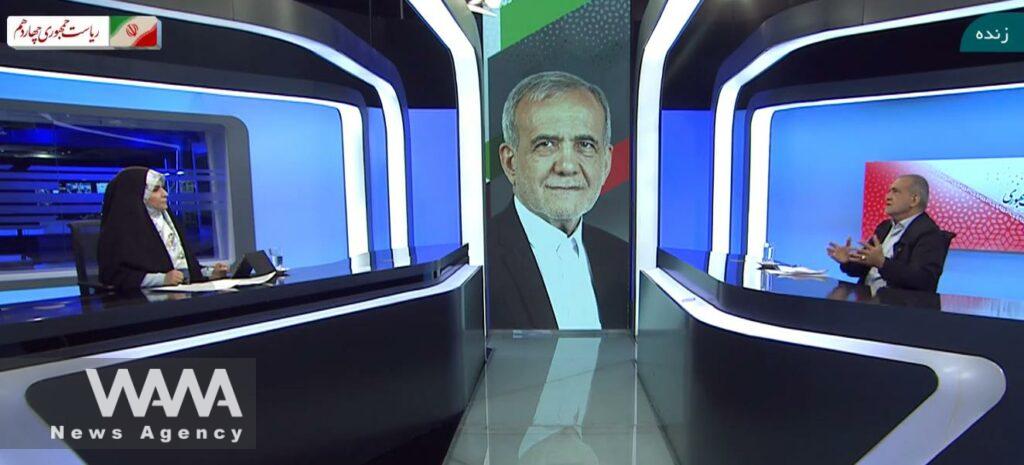Iranian reformers and a candidate with unstable popularity
WANA (June 12) – At first glance, the list of approved candidates for the upcoming Iranian presidential elections might suggest that the predominance of qualified conservative candidates tilts the balance in their favor. However, reformists, with only one candidate approved, actually find themselves with a significantly simpler path in the electoral contests ahead.
The single reformist candidate approved by the Guardian Council is Massoud Pezeshkian. Born in October 1954, Pezeshkian is an Iranian politician and physician who has been serving as the representative of Tabriz in the Islamic Consultative Assembly since 2008, spanning the eighth, ninth, tenth, eleventh, and twelfth terms.
He first registered for the presidential election in 2013 but withdrew after the late Ayatollah Hashemi Rafsanjani’s registration. He again ran for the presidency in 2021 but was disqualified by the Guardian Council. Following the disqualification of various figures in the 2021 elections, Pezeshkian delivered a fiery speech in parliament protesting this issue.
In the tenth term, Pezeshkian was the First Deputy Speaker of the Parliament. He served as Deputy Health Minister in the seventh government and as the Minister of Health, Treatment, and Medical Education in the eighth administration. Now, he stands as the approved candidate of the reformist front for the 2024 presidential election.
An overview of the reformist front’s strategic document, official endorsements by prominent reformist figures, and analyses provided by reformists indicate that the party intends to approach the upcoming election proactively, leveraging its full potential for victory, as Pezeshkian enjoys broad consensus among reformists.
Furthermore, a brief look at the headlines of reformist and conservative newspapers post-candidate announcements reveals the election approaches of both factions. Conservative newspapers, with headlines such as “The Election Furnace, Heats Up,” “The Competitive Lineup,” “Who Will Follow Raisi’s Path,” and “The Arena of Competition,” have taken a general public stance towards the election. In contrast, reformist newspapers, aiming to create a dichotomy with the conservative faction, entered the field with headlines like “And Now, Pezeshkian,” “5+1,” “The Second of June for Reformists,” and “The Salve for the Nation’s Wounds.” This implies that the reformist faction, intent on reviving its social base, will dominate the advertising campaign.
In this brief period since the start of the campaign and after observing Pezeshkian’s speeches and presentations, especially in his first major news interview, he appears surprised by his approval. Consequently, he lacks a detailed program, and top reformist intellectuals and thought leaders have not yet rallied around him.
His repeated emphasis on the point: “I am not here to introduce new ideas or programs, but to implement previously established government plans,” suggests that he lacks a distinctive agenda. Yet, he is adept at speaking the language of the common people, targeting the general populace rather than intellectual elites. This, combined with his white hair, the sincerity sensed from his tone and words, and the unified support of reformists, makes Pezeshkian a formidable contender, posing a significant challenge to the conservatives.
Considering the history of presidential elections in Iran over the past two decades, public inclination towards a particular individual or front for the presidency has followed a pattern of aversion and negative votes, wherein each election cycle’s choice has stemmed from dissatisfaction and negative votes against the incumbent government and its performance.
This year’s election can be considered distinct from previous terms, as the late Raisi’s administration, even if it did not possess widespread popularity among the general populace, did not end due to public discontent or negative votes. The government’s tenure was cut short by his passing, and the historic and magnificent funeral, marked by general public mourning, indicates that the criteria for vote-shifting in this election have altered, and people will consider different standards in their choices. Winning the hearts of the general public and ordinary segments of society will be the winning card.
WANA Writer / R. Hejazi













